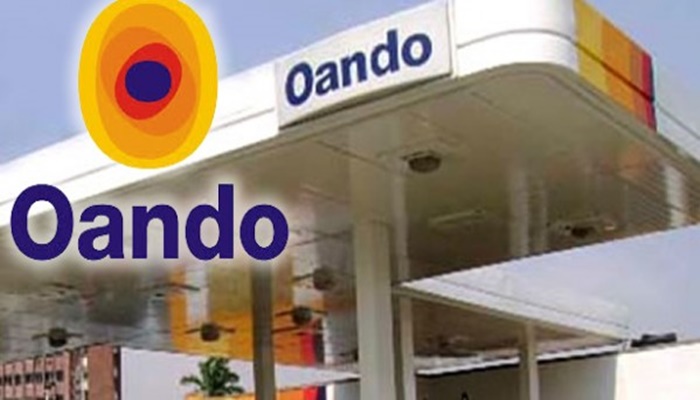
Oando Plc, one of Nigeria’s leading indigenous energy group listed on both the Nigerian and Johannesburg Stock Exchange, has announced unaudited results for the six months period ended 30 June, 2017, with profit after tax increasing by 117 per cent to N4.6 billion compared to N26.9 billion in the first half of 2016.
The company’s turnover increased by 26 per cent to N267.1 billion compared to N212.3 billion in the same period of 2016 while its gross profit increased by 76 per cent to stand at the period at N33.4 billion compared to N19 billion in the first half of 2016.
Its operational highlights show that its upstream production in the first half of 2017 decreased by 20 per cent to 7.2 MMboe (average 39,950 boe/day) compared to 8.2 MMboe (average 44,892 boe/day) in the first half of 2016.
It realized N3.2 billion from the optimization of the crude oil hedge program which will be used to reduce corporate facility debt obligations.
In the downstream, Oando recorded 72 per cent improvement in revenues, from N6 billion in first half of 2016 to N217.4 billion in the review period of 2017.
It exported over 7Mb of crude oil, and imported 600,000 MT of refined petroleum products in the first half of 2017, representing a 20 per cent and 96 per cent increase respectively.
According to the company, the first half of 2017 has witnessed the country’s production levels steadily recovering to normalcy. This has largely been as a result of the containment of the Niger Delta unrest, and the more recent resumption of activity on the Trans Forcados Pipeline.
There is optimism around the approval of the Petroleum Industry Governance and Institutional Framework Bill (PIGB), which should result in a more efficiently regulated sector and a conducive business environment for industry players.
Commenting, Mr. Wale Tinubu, Group Chief Executive, Oando PLC said: “With security concerns in the Niger Delta receding, Nigeria’s economic recovery has been buoyed by a boost in oil output, while the legislative approval of certain segments of the Petroleum Industry Bill (PIB) provides greater long-term policy certainty for the sector.
“Our returns underline our continued successful foray into the Upstream. Within the prevalent crude pricing regime, we remain committed to optimizing our overall production base, seeking unique profit-driven opportunities to further partner with IOCs, while firming up our balance sheet to provide greater shareholder value.”
Oando Energy Resources (OER) recorded an average production of 39,950 boe/day compared to 44,892 boe/day in the first half of 2016. This reduction was primarily due to significant reductions in gas production and delivery caused by a ruptured Gas Transmission System (GTS-4) gas line which supplies our contractual gas to the Nigerian Liquefied Natural Gas Limited (NLNG). Also, the Trans Forcados pipeline continued to suffer downtime in the first 5 months of the year and due to repairs and planned maintenance activities which resulted in reduced production from Ebendo.
In June 2017, the company successfully realized N3.2 billion in net cash from the crystallization of the Corporate Facility hedges (1,590 bbls/day) via early settlement with hedging counterparties – N3.5 billion relating to settlement of hedges offset against N336.5 million representing the cost of the planned reset, which will be utilized in paying down our existing debt obligations. OER is also in the process of entering a new hedge agreement effective July 2017.
In the second quarter of 2017, the company successfully completed the sale of its interests in OMLs 125 and 134 to Nigerian Agip Exploration Limited “NAE” for a profit of N4.6 billion.
Oando Trading (OTD) witnessed a 40% growth in traded volumes and a commendable 147% increase in turnover to N217.5 billion compared to N88.1billion the comparative period of 2016. Our trading business lifted volumes exceeding 7.5mmbbls of crude and imported 610,000MT of refined petroleum products.
The Structured Trade Finance lines in the business increased by N76.5 billion to N214.1 billion in total, from a total of 5 International and African banks. This allows the company to achieve greater trading capacity and in turn more volumes.






